Discover Building your Brand
Building your Brand

Building your Brand
Author: Liz Mosley
Subscribed: 71Played: 2,176Subscribe
Share
© Liz Mosley
Description
Graphic Designer Liz Mosley wants all you small business owners to build businesses that you LOVE and feel confident about promoting. Through her decade of branding and design experience and with the help of her guests, she shares top tips to take the fear out of selling and building your brand.
Produced by: Lucy Lucraft (Instagram @lucylucraft
Cover illustration: Matt Joyce (Instagram @mattjoyce_illustrator)
Produced by: Lucy Lucraft (Instagram @lucylucraft
Cover illustration: Matt Joyce (Instagram @mattjoyce_illustrator)
211 Episodes
Reverse
In today's solo episode I am chatting about the levels of discomfort we can step into in our businesses to activily pursue growth. 'Get out of your comfort zone' isn't always a helpful phrase when there's no nuance added to the context. I chat through what has now become the normal signs and signals for me that I am in that sweet (horrible) spot of discomfort that is just right for me - uncomfortable but not totally out of reach. I would love to hear what you think of this episode, so please do let me know on Instagram where I'm @lizmmosley or @buildingyourbrandpodcast and I hope you enjoy the episode! If you enjoyed this episode please leave a 5* rating and review! Key Takeaways: "Capacity for Discomfort" is More Useful Than "Comfort Zone" Instead of fixating on leaving your comfort zone, focus on gradually increasing your tolerance for discomfort in ways that are healthy and sustainable. Growth Happens in Manageable Steps You don't need to leap into the deep end; taking one step at a time, with realistic self-belief, leads to more sustainable progress. Discomfort is a Sign of Growth, Not Failure Feeling nervous or uncomfortable is normal and often means you're on the right track. Over time, what once felt scary becomes routine. Everyone's Journey is Unique Your capacity for discomfort, the risks you can take, and the support you have will look different from others. Comparing yourself to others isn't helpful; focus on your own path. Episode Highlights: 0:31: The Problem with "Get Out of Your Comfort Zone": I discuss why the phrase can be unhelpful without nuance and context. 3:57: I share my own journey with my comfort zone 7:07: The Value of Discomfort: I talk through how discomfort signals growth and how repeated exposure reduces anxiety over time. 12:00: I talk about the importance of accepting both positive and negative emotions in business and life. Mentioned in the episode: Charlotte Lewis Speaking Confidence
Have you ever thought about becoming an influencer, or perhaps working with creators to grow your brand? This week, I chat to Jason Tamou, formerly a Social Media Manager at Adobe, who has an incredible wealth of knowledge on the creator economy and influencer marketing. Jason shares his journey from being a videographer and photographer to growing a viral food TikTok brand to working with massive brands like Adobe. He explains why big brands invest heavily in creators and how small businesses can utilise influencer marketing, even without a huge budget. Plus, Jason offers brilliant advice on how you can start building your personal brand and land paid partnerships. Episode Highlights 02:40 - Jason's viral journey: hitting 2 million TikTok followers in 18 months by creating recipe content and being called an "idiot sandwich" by Gordon Ramsay. 06:55 - Why big brands like Adobe rely on influencers, who act as "life consultants" to guide people across niches like finance, fitness, and creative editing. 13:00 - Advice for smaller businesses: starting with UGC (User-Generated Content) is the most cost-efficient way to get creator recognition without paying for their platform's reach. 20:15 - The power of enthusiasm: Jason shares a story of a creator landing a partnership not because of their large following, but because of their consistent effort, passion, and involvement in the community. 24:55 - Why influencer fees are justified: creators wear a minimum of ten hats, including editing, business management, and community engagement. You're paying for years of audience-building, not just one video. About the Guest: Jason Tamou Jason Tamou is a former Social Media Manager for Adobe (UK channels) and is currently working as a freelance editor and social media consultant, helping small businesses and individuals build their personal brands and confidence in social media. Instagram (Creator Account): @jasontamou LinkedIn: Jason Tamou I would love to hear what you think of this episode, so please do let me know on Instagram where I'm @lizmmosley or @buildingyourbrandpodcast and I hope you enjoy the episode! This episode was written and recorded by me and produced by Lucy Lucraft lucylucraft.co.uk If you enjoyed this episode please leave a 5* rating and review!
In today's solo episode I start the conversation around our identities within our businesses and how our job titles and professional labels shape our sense of identity. I get personal and reflect on navigating multiple roles, the pressure to define myself by a single career, and the freedom to choose my own narrative. I'd really love to know what you think about the labels and titles we give ourselves and whether or not you can resonate with my slight identity crisis! Come let me know your thoughts over on instagram where I'm @lizmmosley or @buildingyourbrandpodcast. I really hope you enjoy this episode Key Takeaways The Changing Nature of Careers: Careers are no longer defined by a single job or title for life. It's increasingly common to have multiple roles, pivot between professions, and build a career from diverse income streams. This shift can create identity challenges, but it also offers freedom to redefine yourself over time. Personal Branding: Choosing Your Narrative: You have the power to decide how you present yourself to the world. Personal branding isn't about sharing everything—it's about strategically highlighting the aspects of your identity that feel authentic and meaningful to you. Giving Yourself Permission to Claim a Title: You don't need external validation to call yourself a designer, writer, or any other title. If you're doing the work, you can claim the label. Overcoming imposter syndrome often starts with giving yourself permission to own your chosen identity. Episode Highlights 0:53 Rich Webster setting the scene for my identity crisis 1:23 Titles we give ourselves in our businesses and how we draw identity from them 4:13 How titles and career paths have changed in society over the years 5:14 Who gets to decide what the labels are? 6:06 Personal takeaways 7:16 Why we use labels and titles and why maybe we sometimes shouldn't Mentioned in the Episode Rich Webster's Episode - Build your brand by working less Christine Gritmon's Episode - Why you need a personal brand more than ever If you enjoyed this episode please leave a 5* rating and review!
I was so inspired when I heard Laura Belgray speak earlier this year at the Atomic Con conference in Newcastle, I just had to have her on the podcast! Laura is the founder of Talking Shrimp, and her mission is to help entrepreneurs and small businesses find the words and the chutzpah to make their business a perfect expression of their personality—what she calls the "holy grail of work". In this episode, we dive into all things email marketing, a practice which has been hugely beneficial for my business, but can sometimes feel challenging. Laura is an expert at making complex things simple, and she shares her incredible advice on: Why "conversational is the new professional" in copywriting. How to write like you talk, even if you were conditioned to write formally. Her genius tips for crafting subject lines that drive curiosity and get opened. How to find "Story Goldmine" in your everyday, mundane life. Redefining "value" in marketing. Her thoughts on AI, the dangers of its style, and its helpful uses. I really hope you enjoy this chat as much as I did! ⏱️ Episode Highlights 02:00: Laura's windy career path from TV promos to becoming an email marketing expert and launching her first course, Inbox Hero. 04:41: The number one piece of advice for writing great copy: read it out loud to ensure you're writing like you talk. 08:29: Why subject lines should not be like article titles and the best way to get people to open your emails (HINT: think like a text message to a friend). 13:16: How daily journaling of small, mundane details can help you discover 'micro stories' that can be turned into great emails. 33:57: Advice on how to find your voice and inject personality into your writing, including keeping track of your specific expressions and using the 'Coat of Arms' exercise. 👤 About the Guest: Laura Belgray Laura Belgray is the founder of Talking Shrimp, a copywriting company with the mission of helping small businesses and entrepreneurs make their business a perfect expression of their personality. Website: http://talkingshrimp.com Instagram: @laurabelgray Book: Tough Titties on Living Your Best Life When You're the Effing Worst (Available at talkingshrimp.com/book and wherever books 📚 Mentioned in the Episode Course: The Copy Cure (co-created with Marie Forleo) Course: Inbox Hero (Laura's first solo course) Journaling Platform: http://750words.com AI Tool/Training: Make Your Point training and The Point Finder AI tool Freebie: Laura's subject line guide and Story Goldmine prompt guide (63 surprising places to mine your everyday life for stories that sell) Author/Book: Annabel Monaghan (Laura recommends starting with Nora Goes Off Script) Author/Book: David Sedaris (Laura recommends Me Talk Pretty One Day) 💌 End Credits I would love to hear what you think of this episode, so please do let me know on Instagram where I'm @lizmmosley or @buildingyourbrandpodcast and I hope you enjoy the episode! This episode was written and recorded by me and produced by Lucy Lucraft lucylucraft.co.uk If you enjoyed this episode please leave a 5* rating and review!
Celebrating the milestone of 200 episodes of the Building your Brand podcast! 🥳 It's really hard to quantify the direct impact having a podcast has had on me and my business but I hope in sharing some of the lessons I've learned along the way you can get a really good idea of why it's a valuable part of my business and maybe you'll feel inspired to start your own? I'd love to know your thoughts about podcasting and if it's something you're considering for your brand and business, or if you already have a podcast please share with me some of your most valuable lessons! Come find me on instagram where I am @lizmmosley or @buildingyourbrandpodcast to let me know and I hope you enjoy the episode! If you enjoyed this episode please leave a 5* rating and review! Key Takeaways Podcasting and interviewing guests can grow your network exponentially and deepen your business relationships too Podcasting content is mostly evergreen and can be reused across your business and brand There is a wealth of knowledge to be found in the expertise of your guests that can really help you and your audience. Episode Highlights 1:00 Why I started podcasting 1:45 I talk about the way that the podcast has helped me feel confident and improve my communication skills 2:53 The most surprising value that podcasting has added to my business 5:01 I talk about learning the skill of being an interviewer 6:52 The ways that podcasting content can be used to add further value to your business 8:26 I talk about one of the things that I love the most about podcasting 9:47 I chat through how I have managed to do the hard work to keep the podcast going
If you've ever considered writing a book but felt overwhelmed by the thought of it, this is the episode for you! Perhaps you're sitting on a bunch of content and don't realise it could form an amazing book or worry self publishing is costly and stressful? Writing a book is a (secret) goal of mine which is why I wanted to interview Amy Warren, an author, ghostwriter, and book coach about how she helps entrepreneurs, coaches, and consultants transform their ideas into books. Amy shares how self-publishing is changing, why a book is an invaluable asset for your business, and practical steps to get started, even if you don't consider yourself a "good writer". This episode is designed to inspire you to take the leap if writing a book has been on your goal list! Key Takeaways A Book is a Powerful Calling Card: A book can literally transform your career and business by introducing you to a wider audience without you having to be physically present. It serves as an epic lead magnet and an attainable way for people to access your expertise. Repurpose Existing Content: If you have a podcast, you are sitting on a huge asset that can be turned into a book by identifying core themes and using clips and recordings to back up your written arguments. This is an exciting way to break down the mindset block that a book must be completely new content. The Goal is the Outcome: Before starting, define the purpose of your book by completing this sentence: "I will write a book that will...". This goal will inform the book's content, ensuring it gives value while leaving readers wanting more, potentially leading them to your higher-cost services. Episode Highlights 02:11 - Discussing the huge historical stigma around self-publishing and the increasing difficulty of securing traditional publishing deals due to reliance on social media following. 05:00 - Amy shares her personal story of how self-publishing her first book, after initial rejection, led to a full book deal, ghostwriting Sunday Times bestsellers, and a whole new business. 07:50 - How to turn a podcast into a book using AI to sift recordings and identifying overarching themes to create a structured narrative, rather than just a tedious transcript. 13:20 - The benefits of being an author, including becoming a recognised expert or "thought leader", using the book as a high-quality "calling card" to pitch to prospective clients, and boosting your professional bio. 23:50 - The vital first step in writing a non-fiction book: creating an outline to map out the chapters, their contents, and the reader's entire journey or arc. About the Guest: Amy Warren Amy Warren is an author, ghostwriter, and book coach who helps entrepreneurs, coaches, and consultants turn their ideas into commercially viable books. She also helps people self-publish their books through a 'publishing partnership,' where the author retains all rights and control. Website: thewritinghouse.co.uk Instagram: @_thewritinghouse LinkedIn: The Writing House (Amy Warren) I would love to hear what you think of this episode, so please do let me know on Instagram where I'm @lizmmosley or @buildingyourbrandpodcast and I hope you enjoy the episode! This episode was written and recorded by me and produced by Lucy Lucraft lucylucraft.co.uk If you enjoyed this episode please leave a 5* rating and review!
For this week's solo episode of the Building your Brand podcast I've recorded a little mid-event review at Adobe MAX 2025 in LA. I talk about the features revealed in the Opening Keynote, my favourite bits of the conference as well as some things that might not be what you'd expect. Join me for a chat about the thoughts in my head and a little bit of a behind the scenes at Adobe MAX LA. I hope you enjoy this episode, let me know what you think! Come find me on instagram where I am @lizmmosley or @buildingyourbrandpodcast to let me know and I hope you enjoy the episode! Episode Highlights 0:34 My first time at Adobe MAX 4 years ago 01:25 The Keynote 02:00 My favourite new feature and some more AI thoughts 03:35 What I love about Adobe MAX 05:33 The format behind my talks/LAB at MAX 06:52 Content of the conference and BTS of what happens at MAX Mentioned in the episode Andy Lambert Premiere Pro Mobile App Oak Feld Keynote Adobe MAX 2023 Adobe MAX 2025 My LAB with Andy Lambert
I am really trying to cover all different aspects of branding and marketing with this podcast so today I'm diving into something I haven't covered much: how to attract your dream clients through your brand messaging. I chatted with Kierian Cameron, a graphic designer, brand consultant, and the founder of the UK's first premium print-only business newspaper for brand-obsessed founders and entrepreneurs, Brand Cult. Kierian shares her incredible 'squiggly' career journey—from psychiatric nurse to winning the lottery and starting an education company, which eventually led her to graphic design and launching her newspaper. We delve into brand messaging—what it is, how to be strategic and intentional with it, and what tweaks you can make to attract higher-paying clients. If you've been stuck trying to attract the right clients, this is the episode for you. Key Takeaways Brand Messaging is Your "Cult Doctrine": It's not just about what you say, but what you stand for, including your brand's vision, mission, and the cause you're behind. Be Intentional and Strategic: Instead of throwing spaghetti at a wall to see what sticks, make a conscious decision about what you will and will not talk about before you speak. This prevents you from diluting your brand. Attract the Right People: When you show up authentically, unapologetically, and say things with intention, you will attract the people that resonate with your message, which gets you results quicker. Develop Branded Soundbites: Create five to eight short, core soundbites or clips of your messaging that you can use over and over again—in your social media, elevator pitch, and all brand touchpoints—to reinforce your message. Convey Confidence to Attract Higher-Paying Clients: Higher-paying clients are looking for confidence and expertise. Episode Highlights 01:40 - Kierian describes her 'squiggly career' and how she went from psychiatric nursing in NYC to starting a business in Hong Kong. 09:59 - Kierian explains what brand messaging is and the importance of having a 'villain' in your brand's story. 13:34 - The critical connection between strategy, intentionality, and not diluting your brand. 25:47 - Kierian recommends a book for those who want to attract more affluent clients. 28:33 - Discussing Liquid Death and American Eagle as examples of brands with spot-on or intentionally controversial messaging. About the Guest Kierian Cameron is a graphic designer, brand consultant, and the founder of Cult, the UK's first premium print-only business newspaper. Website: brandcult.uk use discount code: CULTMYSTERY Instagram: @brand.cultuk Mentioned in the Episode Book: The No BS Marketing to the Affluent by Dan S Kennedy Concept: Ikigai (The Japanese philosophy of finding one's purpose) I would love to hear what you think of this episode, so please do let me know on Instagram where I'm @lizmmosley or @buildingyourbrandpodcast and I hope you enjoy the episode! This episode was written and recorded by me and produced by Lucy Lucraft lucylucraft.co.uk If you enjoyed this episode please leave a 5* rating and review!
The topic of AI can be confusing and contenious for small businesses. I wanted to have a chat through the ways in which we need to be aware of how using Generative AI can affect our small business and brand. I look at ways it can harm our brand and ways we can use it that keep us true to our brand. I'd love to know if you've thought about making a statement around your AI usage in your business? If you have already or have a totally different position to me on it I'd love to hear your thoughts. Come find me on instagram where I am @lizmmosley or @buildingyourbrandpodcast to let me know and I hope you enjoy the episode! Key Takeaways To build a successful business you need to build trust with your audience. Building trust with your customers is similar to building trust in relationships - you need to do the things you say you're going to do. If you use AI to produce an expected outcome for your customer there will always be discrepencies between that and the real outcomes when it comes to what you need to deliver for your clients If you rely on Generative AI for visuals or copy for your brand then your clients aren't going to be able to disguinish between what is truly you and what is AI If you don't do your due-diligence fact-check ChatGPT you could be spreading mis-information Episode Highlights 0:58 I talk about the foundation for my thoughts on AI for small businesses and branding and why trust should be at the forefront of your brand 03:58 I talk through how AI is potentially damaging brands more than we realise 07:00 Examples of how to use AI effectively in your business that doesn't damage your brand 11:28 Final thoughts Mentioned in the episode Hannah Isted Adobe (Aff link)
If you've been following me for a while, you'll know that YouTube is something I've been trying to do more regularly and that's why I was so excited to chat with the brilliant Jade Beason for this week's episode. In our conversation, Jade shares so many practical tips on how to grow your YouTube channel, and she also speaks with such honesty about her own experience—how she got started with no editing skills, what she learned along the way, and the mindset shifts that led to her success. I honestly had a million more questions I wanted to ask her! Whether you're just thinking about starting a channel or looking to get more consistent, this episode is packed with valuable insights. Key Takeaways Start with Value, Not Gear: In the beginning, your only focus should be on consistently delivering valuable content to your audience. Set a "Commitment Goal": To overcome the initial period of low views and slow growth, set a "commitment goal". Evolve Before Your Audience Gets Bored: A content or thumbnail style that works brilliantly now will likely cause audience fatigue in about six months. Create for Your Audience, Not Yourself: To build a brand or community, you have to switch from creating content for yourself to creating content for your audience. Episode Highlights [07:00] Jade shares the catalyst for starting her channel: watching her husband go from idea to a published video in just 48 hours made her realise it wasn't as hard as she was telling herself. [15:00] Jade walks through her specific, manual process for researching and identifying trending video topics that have a high potential to be pushed beyond a creator's existing audience. [23:00] Why thumbnails are "incredibly important" and act like an advert for your video . A low click-through rate tells the algorithm that people aren't interested, and it will stop recommending your content. [39:00] Jade's quick-fire advice for anyone starting out, including how often to post , how long videos should be (and the 8-minute monetisation rule!) , and what basic kit you actually need. About the Guest Jade Beason is a content marketing expert who helps creators build sustainable businesses. She started her YouTube channel in November 2020 and grew it into a full-time career within six months. She is the founder of the creator community The Creator Project and the new agency Social People. YouTube: Jade Beason Instagram: @jadebeason Website: jadebeason.com The Creator Project: creatorproject.com Social People Agency: socialpeopleagency.com Mentioned in the episode Editing Software: DaVinci Resolve, Adobe Premiere Pro Project Management: Asana Video Collaboration: Frame.io Equipment: Elgato, DJI, Neewer People: Liz Wilcox, Andy Lambert I would love to hear what you think of this episode, so please do let me know on Instagram where I'm @lizmmosley or @buildingyourbrandpodcast and I hope you enjoy the episode! This episode was written and recorded by me and produced by Lucy Lucraft lucylucraft.co.uk If you enjoyed this episode please leave a 5* rating and review!
2025 seems to have been a tough year for small business owners so today on the podcast I am giving us all a little pep-talk and a reminder about why it is absolutely brilliant to keep showing up as best we can in and for our businesses. I'd love to know how things are going for you and if any of this has been helpful and encouraging. Come find me on instagram where I am @lizmmosley or @buildingyourbrandpodcast to let me know and I hope you enjoy the episode! Key Takeways As small business owners and creatives it's often when we are under pressure and things feel difficult that creativity grows. Pressure often pushes innovation If you're a small business owner, you're a problem solver, you are a creative, you will find a solution that will help you and help other people As a small business owner, some of the small business magic is that you can be agile and pivot in a way that large companies can't. You have something unqiue to sell or offer as a small business owner because it's YOU who are doing it and there is no-one else like you Where AI is offering us 'perfect' and 'slickness', showing your audience the messy reality of your humanity within your business will cultivate deeper connections, authenticity and trust in your business. Be intentional in the ways that you want to impact the world because you have influence and that impact will grow and spread Episode Highlights 1:30: I talk about how amazing things can happen under when we're pressure as small business owners 3:21: I talk about the magic sauce behind being a small business owner 5:25: I talk about the beauty of being uniquley you withint your industry and ways to lean into that 7:40: I talk about embracing our humanity as a positive within our small businesses 10:25: Final thoughts on the imapct we have on the world
One of the things I love most about building a brand is the opportunity to explore creative projects beyond my core offering. Whether it's a podcast, a book, or a YouTube channel, these projects allow us to share our work in new and exciting ways. That's why I'm so excited to share my conversation with Izzy Poirier and Caroline Sarrette, the brilliant minds behind the Ottawa and New York Design Clubs. In this episode, we go behind the scenes on their latest collaborative project: a beautifully designed zine. We discuss the entire process, from the initial idea during the pandemic to navigating difficult printers and securing sponsorship. Izzy and Caroline share candidly about the struggles of managing a huge project with lots of collaborators, but also the incredible benefits and sense of community it has brought them. If you've ever thought about launching a creative project to showcase your work, you're going to love this episode. Key Takeaways Passion Projects Fuel Your Brand: Running the design club and creating a zine has been a huge undertaking, but it has directly influenced Izzy's business, helping her define her niche in community building and bringing her new client work. Embrace the "Silent Work": A finished zine or a successful event looks effortless, but it's built on a mountain of unseen work, from endless email outreach to speaker rehearsals and logistical planning. It's the underlying passion for the project that keeps you motivated through the long hours. Challenges Build Resilience: Every hurdle, from finding the right speakers to navigating a tense negotiation with a printer that changed a quote by 50%, is a lesson. Overcoming this friction is what improves your processes and makes you stronger. Print Creates Tangible Community: The zine began during the pandemic as a way to archive creativity happening during lockdown. It has since become a tangible way to showcase artists, create conversations, and even help contributors land jobs. Episode Highlights 05:47: Izzy explains how starting the Ottawa Design Club at the exact same time as her freelance business was a strategic move to build a network and find her niche. 10:04: Discover how the zine began during the pandemic to create a repertoire of the amazing creativity happening in isolation, and how the first edition sold out in just three days. 17:10: Caroline discusses the specific challenges of building a community in a city like New York, including cutting through the noise to find speakers and sourcing affordable venues. 27:53: Izzy shares the incredibly intense story of a sponsorship deal with a printer going wrong, how she navigated a tense negotiation, and the importance of standing your ground for your community. 34:59: Learn about the theme of the latest zine, "Pivotal Moments", which explores the career-defining shifts that creatives experience and aims to inspire readers to embrace change. About the Guests Izzy Poirier is a brand designer and strategist and the founder of the Ottawa Design Club. Caroline Sarrette is a graphic designer and art director who runs the New York chapter of the Design Club. Izzy Poirier: Website Instagram Caroline Sarrette: Website Instagram Mentioned in the episode Pivotal Moments Zine Adobe Live I would love to hear what you think of this episode, so please do let me know on Instagram where I'm @lizmmosley or @buildingyourbrandpodcast and I hope you enjoy the episode! This episode was written and recorded by me and produced by Lucy Lucraft lucylucraft.co.uk If you enjoyed this episode please leave a 5* rating and review!
Context collapse online is a huge reason why people can end up misunderstanding or misinterpreting content that you create; small business owner or not! It's also just so easy and lazy to make a comment without first looking for deeper context ourselves. On todays's solo episode I am talking about some negative comments that showed up on a video that I made for a brand and how I felt about them and have used them to move forward in my own personal development. I'd love to know what you think about the comment culture online. Come find me on instagram where I am @lizmmosley or @buildingyourbrandpodcast to let me know and I hope you enjoy the episode! Key Takeways When we are building visable brands we do expose ourselves to other people's opinions There's often a context collapse when you post snippets of your life online We don't need to justify the way we spend our time just to fit other people's expectations of what holds value or productivity When someone makes a comment bringing you down, it often has more to do with how they are feeling about their own lives than what you're actually doing. Episode Highlights 1:12 The story of how I got trolled 5:09 The trolling comments 7:04 Talking through my initial response 8:15 The signs of when something is bothering me when I thought it wasn't 10:32 Challenging myself to not over-explain or justify my decisions 11:58 How being trolled has helped me Mentioned in the episode Jo Hooper - Get Wildly Free Instagram My Adobe ad - The Day In The Life
On this week's episode, I chat with Paul Ince, also known as Biz Paul, about his experience running "Marketed Live," an event he started to help build his brand and business and one I attended as a keynote speaker! We dive into the behind-the-scenes insights of organizing an event, discussing everything from finding a venue and selling tickets to the importance of customer service and food. Paul shares how running an event has significantly boosted his personal brand and offers invaluable advice for anyone considering hosting their own event. Key Takeaways: Running an event can significantly benefit your personal brand and overall business reputation, even if it's not a huge money-maker on its own. Prioritize the attendee experience by investing in quality food, excellent customer service, and thoughtful details that surprise and delight. Carefully consider your audience and what they would find most valuable. You don't always need big-name speakers if you provide genuine value. Explore alternative sponsorship opportunities, such as tapping into a company's Corporate Social Responsibility (CSR) budget to fund initiatives like social ticket funds. It's okay to let go of an event or project if it no longer serves your business goals or personal capacity. Sometimes, saying "no" to one thing allows you to focus energy on more profitable or fulfilling ventures Episode Highlights: 03:15: Paul shares the origin story of "Biz Paul" and how his content marketing consultancy, Like Mind Media, came about. 05:07: Discover why Paul and his friend Tim decided to create Marketed Live and their vision for the event. 09:20: Paul explains how Marketed Live became a valuable asset for Like Mind Media's clients and boosted his personal brand. 17:35: We discuss the unexpected challenges of running an event, including the difficulties of selling tickets and venue issues. 28:06: Paul reveals a clever strategy for securing sponsorship by aligning with corporate social responsibility (CSR) budgets. 37:05: Paul talks about the decision to pause Marketed Live and the importance of knowing when to pivot your business focus. About the Guest: Paul Ince, also known as Biz Paul, is a marketing strategist and the founder of Like Mind Media. Website: bizpaul.com Social Media: @BizPaul (on all platforms) Like Mind Media: likemind.media I would love to hear what you think of this episode, so please do let me know on Instagram @lizmmosley or @buildingyourbrandpodcast I hope you enjoy this episode This episode was written and recorded by me and produced by Lucy Lucraft (http://lucylucraft.co.uk) If you enjoyed this episode please leave a 5* rating and review!
I recently did a Q+A box over on my instagram and today's episode is me answering the questions that came up. It's so great to be able to answer specific questions from listeners and I hope you enjoy discovering the answers to the questions asked too! If you have any other questions for me, or if the answers sparked more questions come find me on instagram where I am @lizmmosley or @buildingyourbrandpodcast and I'll keep a list for the next Q+A episode. Episode Highlights 0:32 Exciting news for the next season of the podcast 3:27 What would have to happen for me to stop podcasting? 5:14 What is your least favourite podcasting task to do? 6:36 You have a client deadline and a podcast deadline clash, which one wins? 10:12 What hasn't worked that you've tried before? 13:30 What's the kindest thing someone has said about the podcast? 14:24 Why haven't we had a live podcast recording/show yet? 15:48 Do you sell products with your hand-lettering on? Mentioned in the episode My YouTube Channel (please subscribe if you enjoy YouTube content!) Waitlist for the Live Podcast Event If you enjoyed this episode please leave a 5* rating and review!
It can be hard to know what to invest in and when in your small business. Today I am sharing the recent investments I have made, why I made them and how they have helped me level up in my business. Have you made some recent upgrades or investments in your business? I'd love to know what has really supported you and given you a good ROI? Come find me on instagram where I am @lizmmosley or @buildingyourbrandpodcast to let me know and I hope you enjoy the episode! Key Takeways Needing hi-tech equipment shouldn't be a barrier to entry for things in your business: start with what you have and build as you go Upgrading your equipment or spending money on support for your business can remove the friction for you Episode Highlights 0:32 Why it helps to invest in your business 0:56 Leveling up my video tech and why 2:58 The things I have invested in - camera 4:03 The things I have invested in - microphone 5:09 The things I have invested in - teleprompter 7:09 The things I have invested in - coaching 8:53 The things I have invested in - portable camera Mentioned in the episode Sony ZVe10 camera Rode podmic USB Elgato teleprompter Zencastr Paul Ince Business Coaching Osmo Pocket 3
Want to know one of the most clarifying and helpful things you can do for your small business? Define your mission statement. I've come across many small businesses who are doing great things but don't seem to have a clear direction they are going in simply because they missed a step when starting out, which is to determine their mission statement. On today's solo episode I chat through what a mission statement actually is, we look at big companies' mission statements and look at what's needed to define your own mission statement. I think you're going to find this episode helpful even if you already have a mission statement - it's always a good time to check in and make sure all areas of your business are going in the direction you actually want them to! Let me know if this episode resonated with you. I'd love to know your mission statement too. Come find me on instagram where I am @lizmmosley or @buildingyourbrandpodcast and I hope you enjoy the episode! Key Takeways A mission statement is an achor and a guiding light in your business When you're clear about your motivation and values it translates well accross in your business and can help you make the right decisions for your business Money as the sole motivator for your business wont help you be clear on the bigger purpose of your business and it will be easy to get lost along the way. Episode Highlights 0:29 The difference between a mission statement and a vision statement 3:30 Big brands' mission statements 5:56 How to breakdown what a mission statement is so that you can create one 7:56 Making money as your mission statement, is that good or bad? 9:02 My advice for what to think about when writing your mission statement
If you didn't already know, I've been trying to get to 100 Rejections for the last two years. Today I am chatting through the update of how it's all going (spoiler alert - I am failing!!!). I have been learning valuable lessons along the way and as I share them in today's episode I hope you find them helpful too. If you want some support in your Rejection Challenge Journey, or simply would like to have a list of ideas of what you could pitch for then you will want to get your hands on my latest resource - The Rejection Challenge Prompts Package; 30 prompts for you to challenge yourself with, daily or at your own pace. Let me know how your rejection challenge is going if you're doing one or what the first thing you will pitch for if you're about to start! Come find me on instagram where I am @lizmmosley or @buildingyourbrandpodcast and I hope you enjoy the episode! Key Takeways You have to learn to trust that you will be able to handle the rejection and move on Very rarely is anything a 'forever' no Pursuing rejection gets you more comfortable with discomfort and helps you to learn how to move on quicker when rejections do come Episode Highlights 1:00: Let's get rejected - a new product to help you with your rejection challenge 1:37: the story so far and why I'm failing 3:15: A new challenge to help me get to 100 5:15: Dream clients as a motivitaion 6:44: Things that hold me back in the rejection challange
Have you ever felt like there's a bit of a blockage between what you're doing now and where you want to be in marketing your business? Are you watching other people show up for their brands and their marketing in ways that just seem beyond what you feel naturally comfortable in doing and you don't even think the content they're producing is that good but they seem to be doing well...? Well today's episode is for you! I was having a chat with my friend who works in fundraising for a Charity and our converstation inspired today's episode. Join me as I talk through and encourage us all to lean a bit further into our discomfort and what feels 'cringe' and why that's a great move for your branding, marketing and business in general. I would love to hear your thoughts on what has helped you overcome the cringe and what you're planning to do to grow your personal discomfort in your business Come let me know on instagram where you can find me @lizmmosley or @buildingyourbrandpodcast and I hope you enjoy the episode! Key Takeways The most successful people are not necessarily the people who are the best at what they do. It's often the people who are prepared to put themselves out there. The people who are willing to work through 'the cringe' are the ones who are getting their businesses and products infront of clients and making the sales In order to grow our businesses we need to grow our capacity for discomfort A huge part of success is the willingness to show up and risk failiure Episode Highlights 0:42 The story behind today's topic 1:53 Who is winning at being successful? 2:46 Being 'cringe' online 3:21 How to grow your business well 4:27 Why people get held back in their businesses 5:25 Things you can do to help you push through the discomfort 7:59 How to stand out in your industry 10:23 A round up of lessons learned
It is so tempting to jump on trends when it feels like 'everyone is doing it', and the creative direction is right in front of you but does it actually help or hinder your business? Today I chat through my thoughts on whether or not following trends is good for your branding and if you do follow trends how to know which ones work for you and which ones don't. I would also love to hear your thoughts on how you feel about trends and whether or not they work for you. Come let me know on instagram where you can find me @lizmmosley or @buildingyourbrandpodcast and I hope you enjoy the episode! Key Takeways Trends don't last for very long; if you create branding based on a trend, within a year the trend will have moved on If you change your branding regularly you risk breaking trust with your audience and clients If you jump on a trend at the right time, it can have a good imapct and work well Some trends can get boring really quickly and become oversaturated Episode Highlights 1:14 Trends in visual branding 2:10 why rebranding frequently causes problems 4:10 Ways to use trends in your small business visual branding 6:41 trends within your visual content 9:35 Questions to ask yourself before jumping on a trend Mentioned in the episode Trending reel with Liz Mosley and Hannah Isted


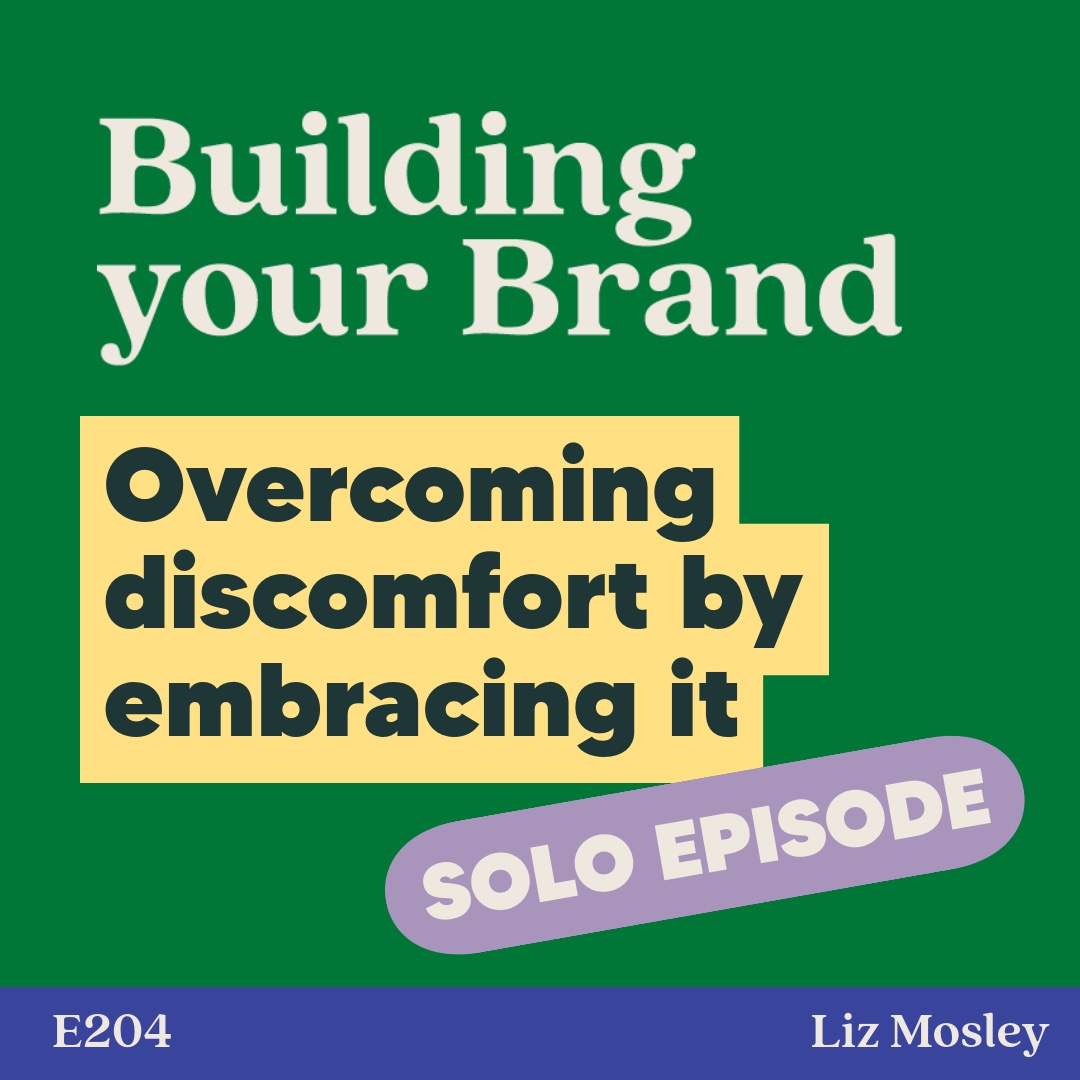
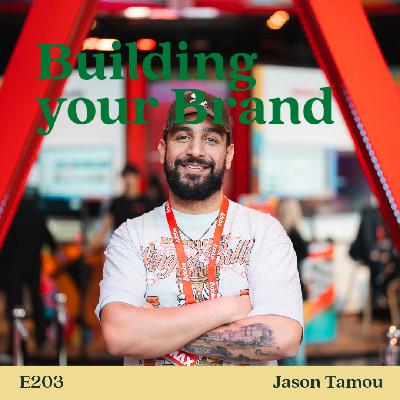
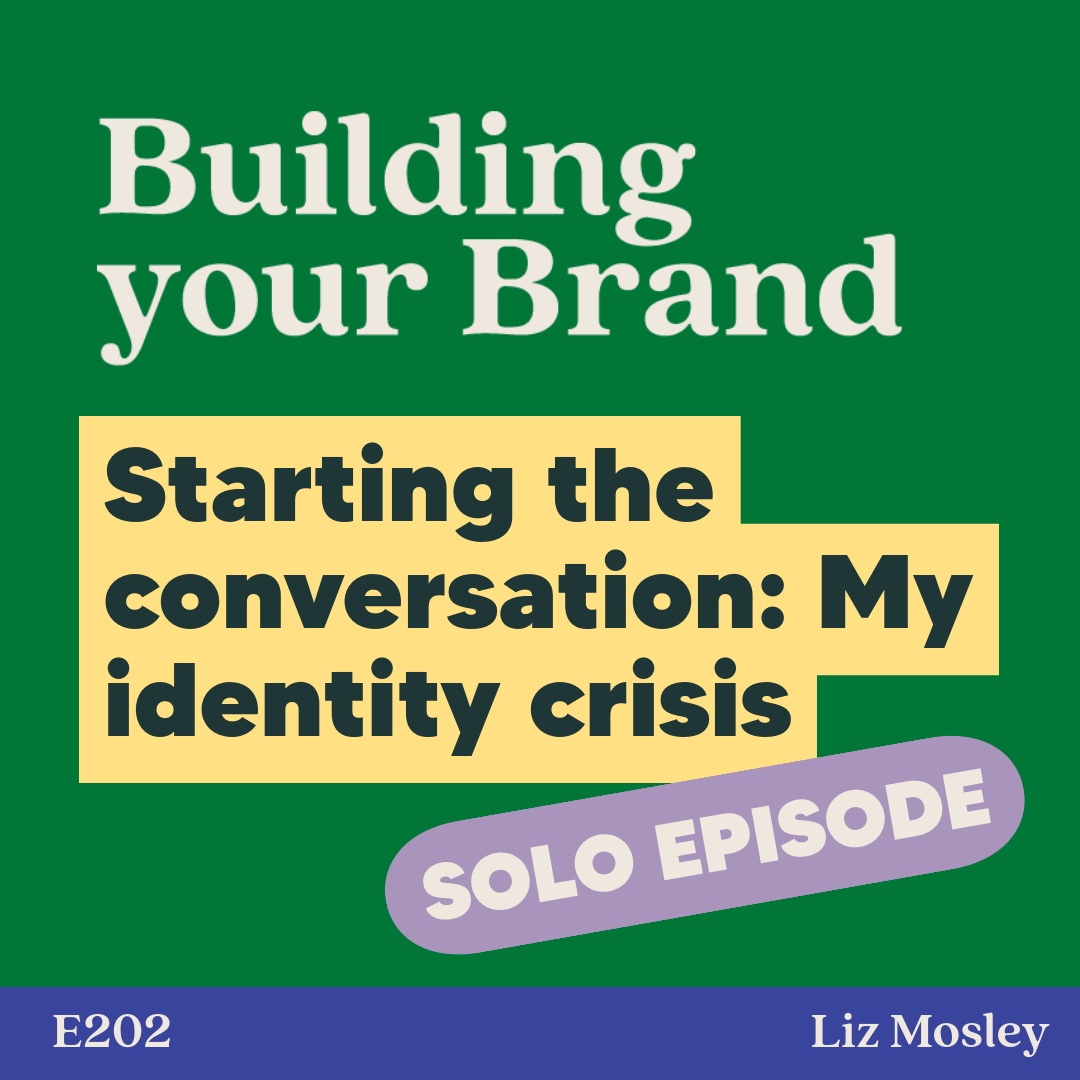
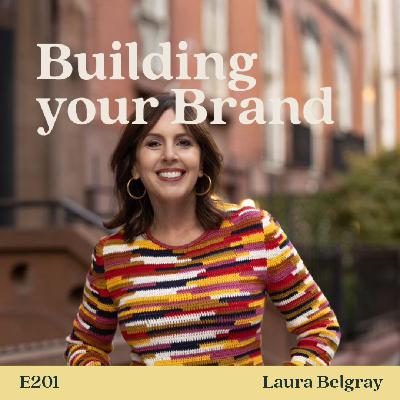
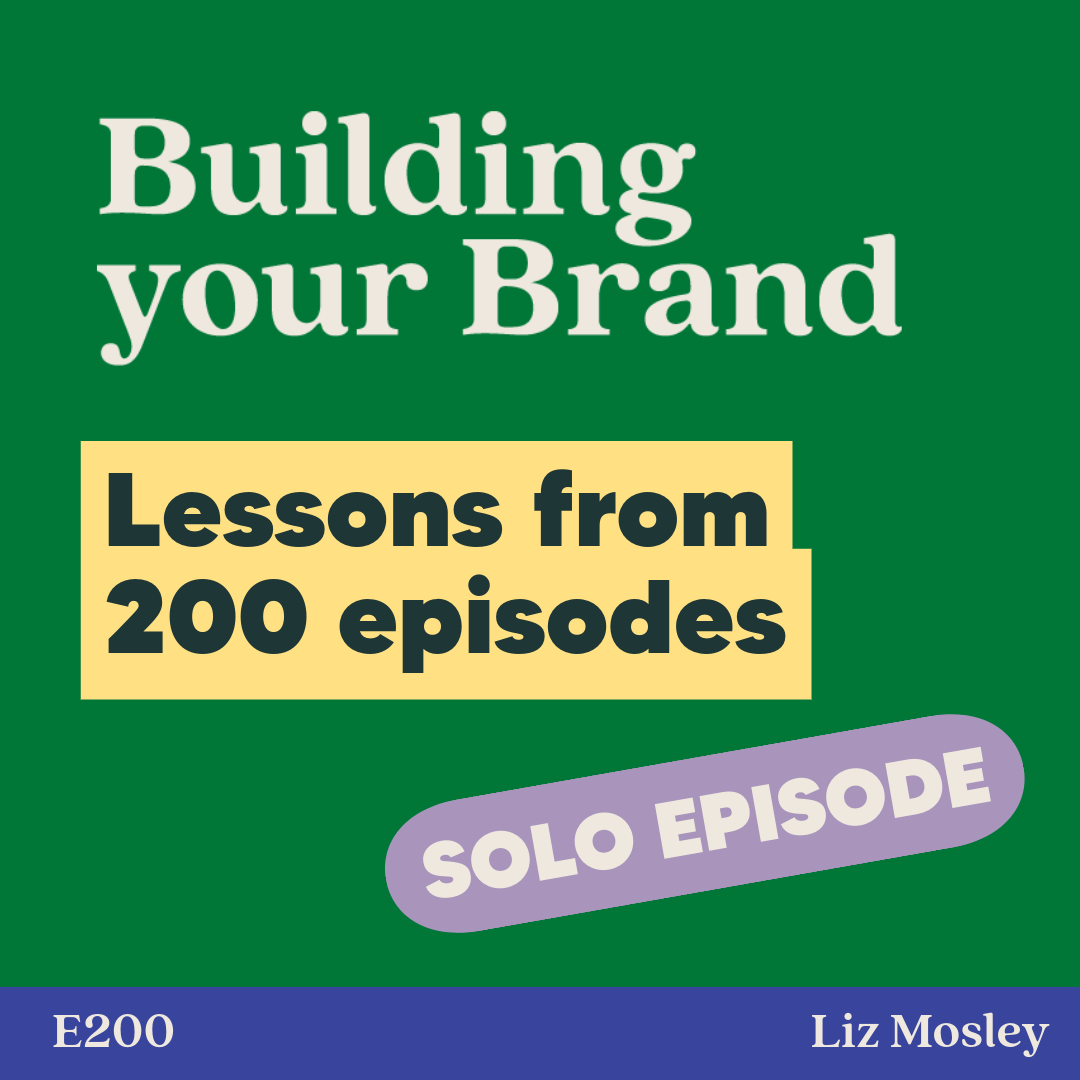
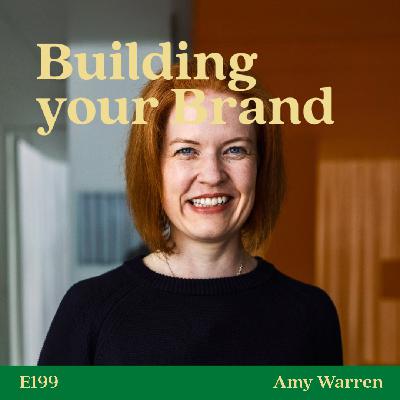
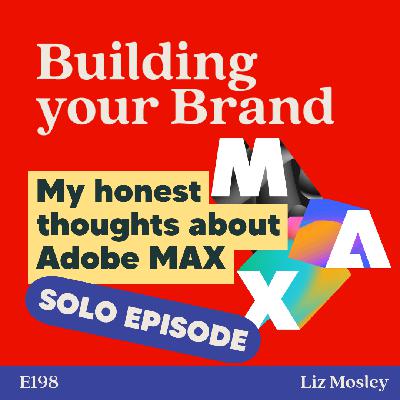
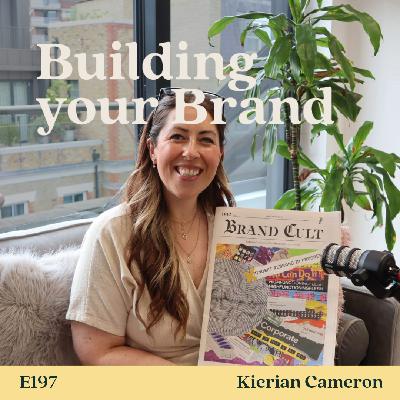
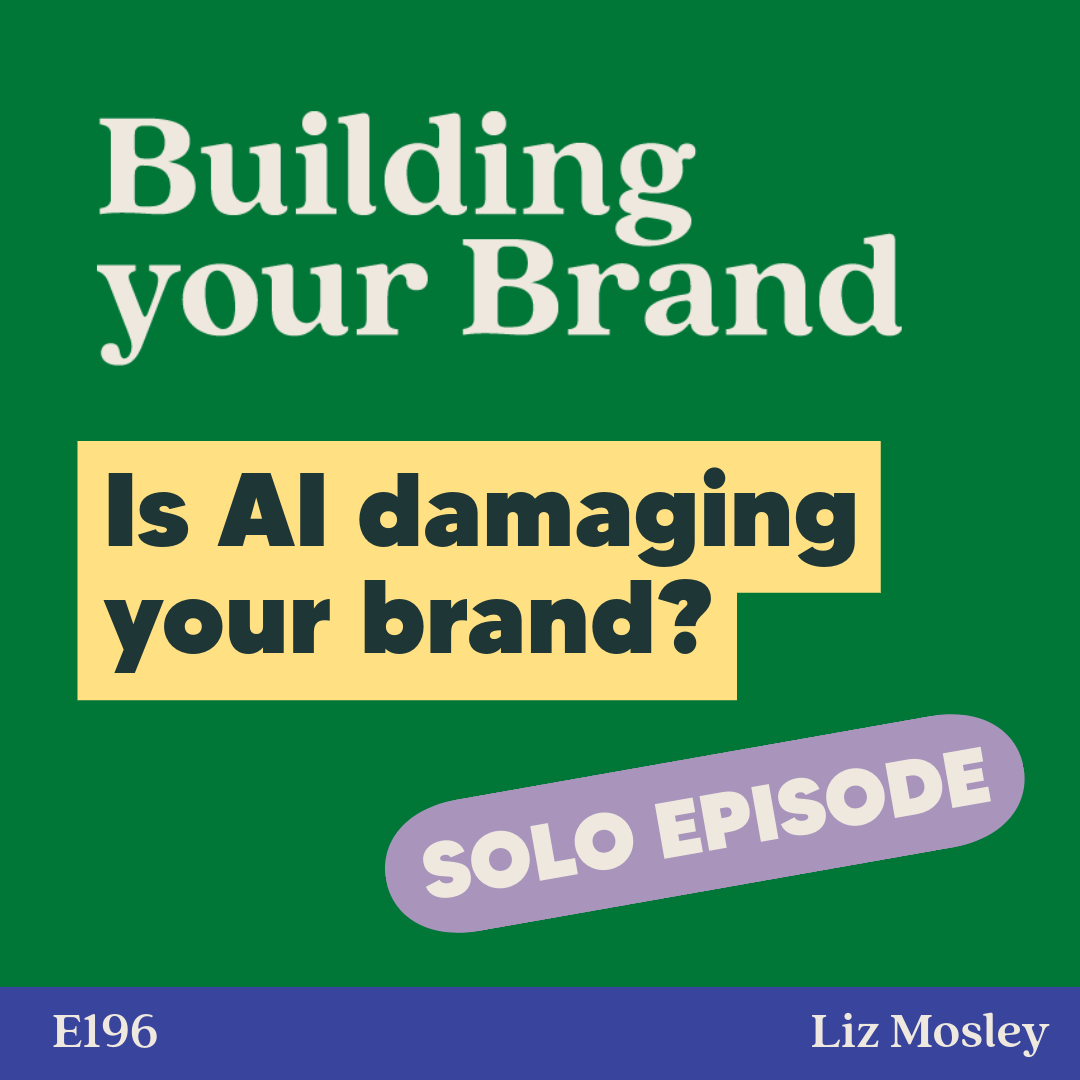
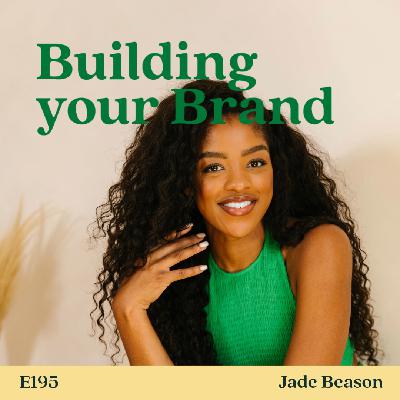
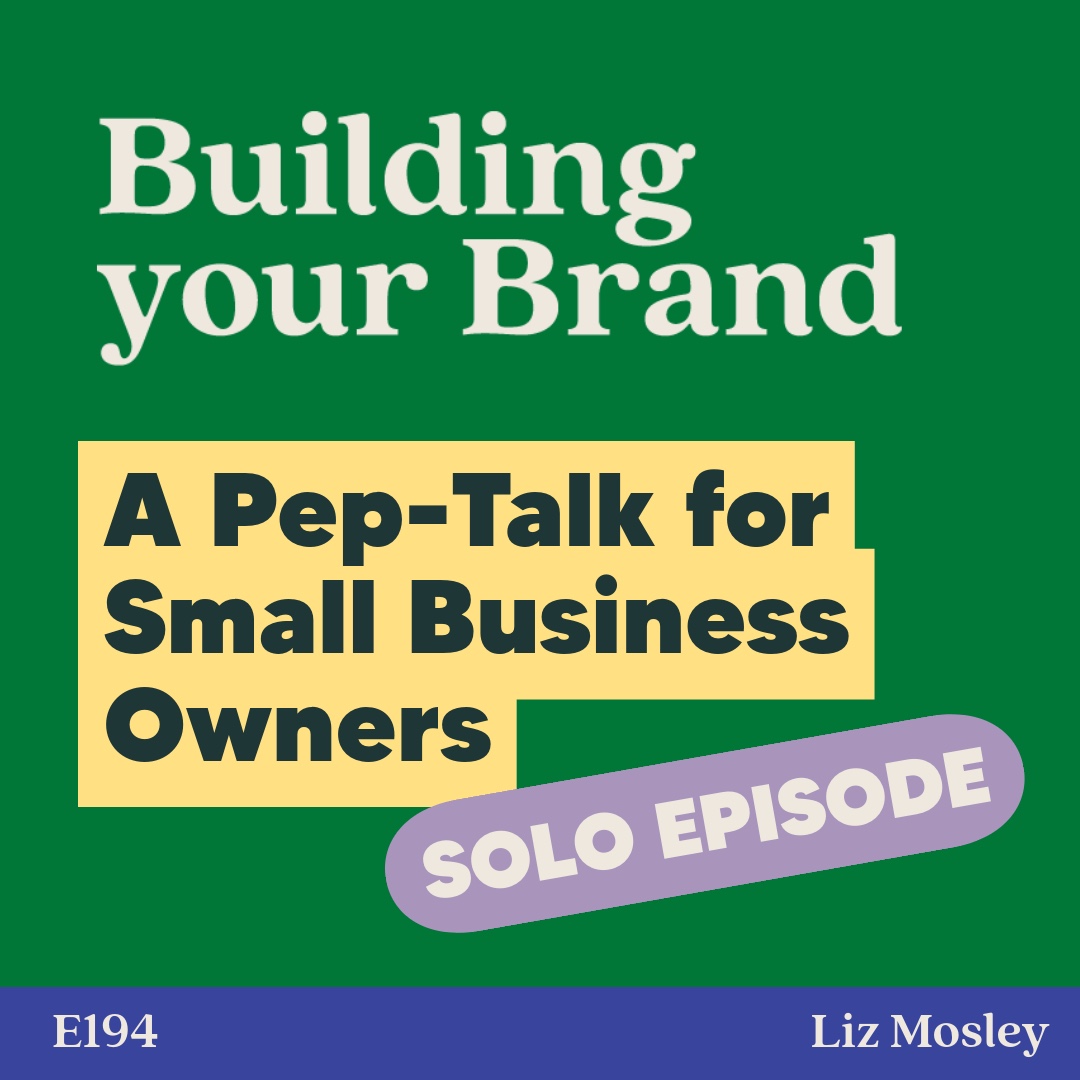
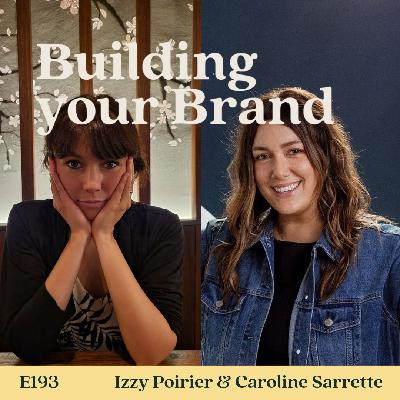
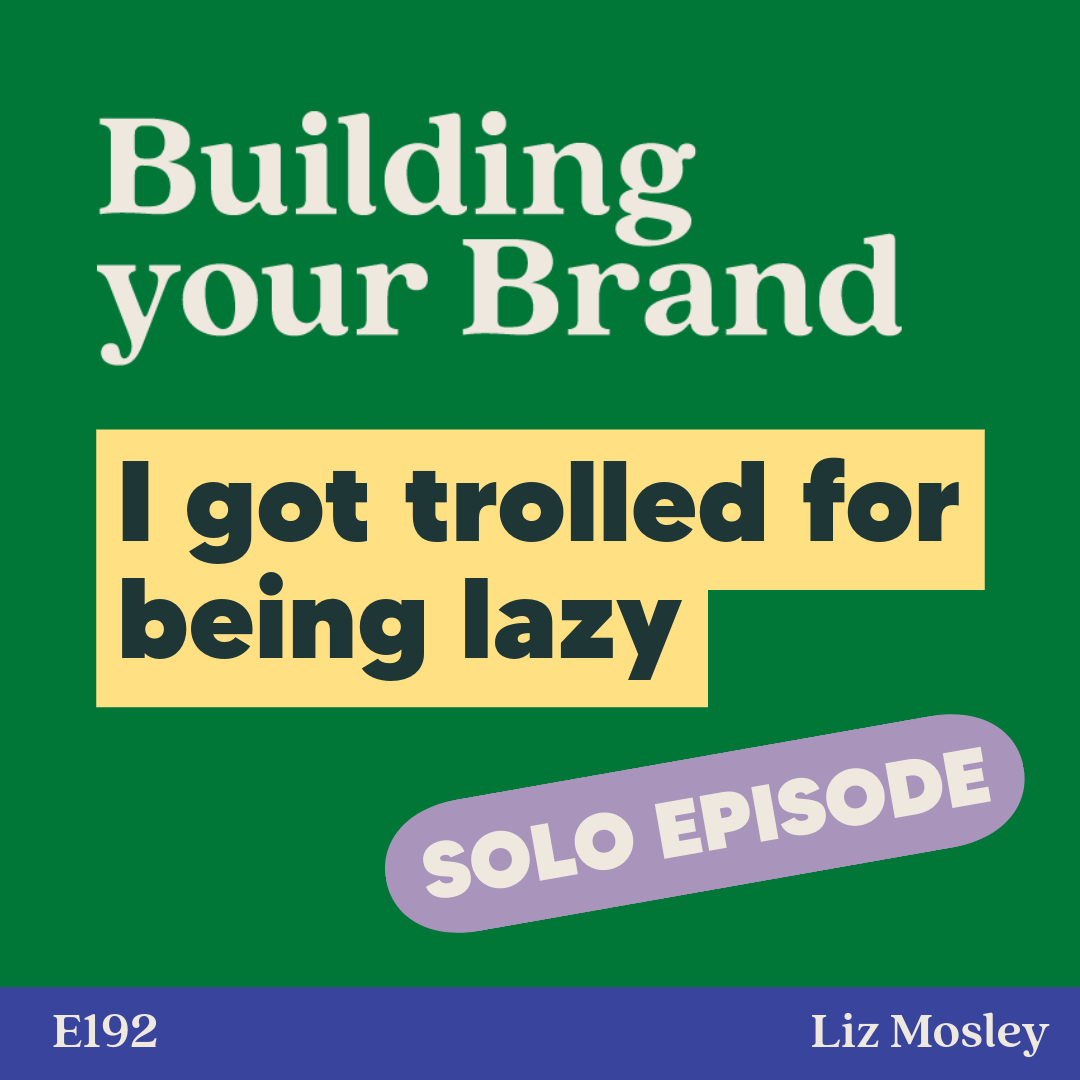

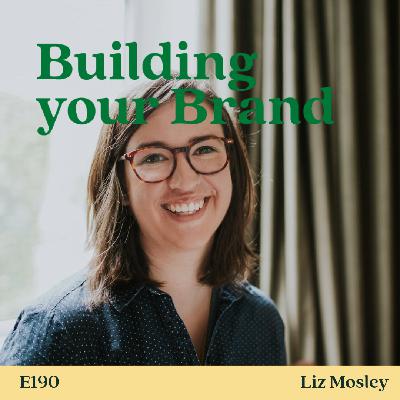
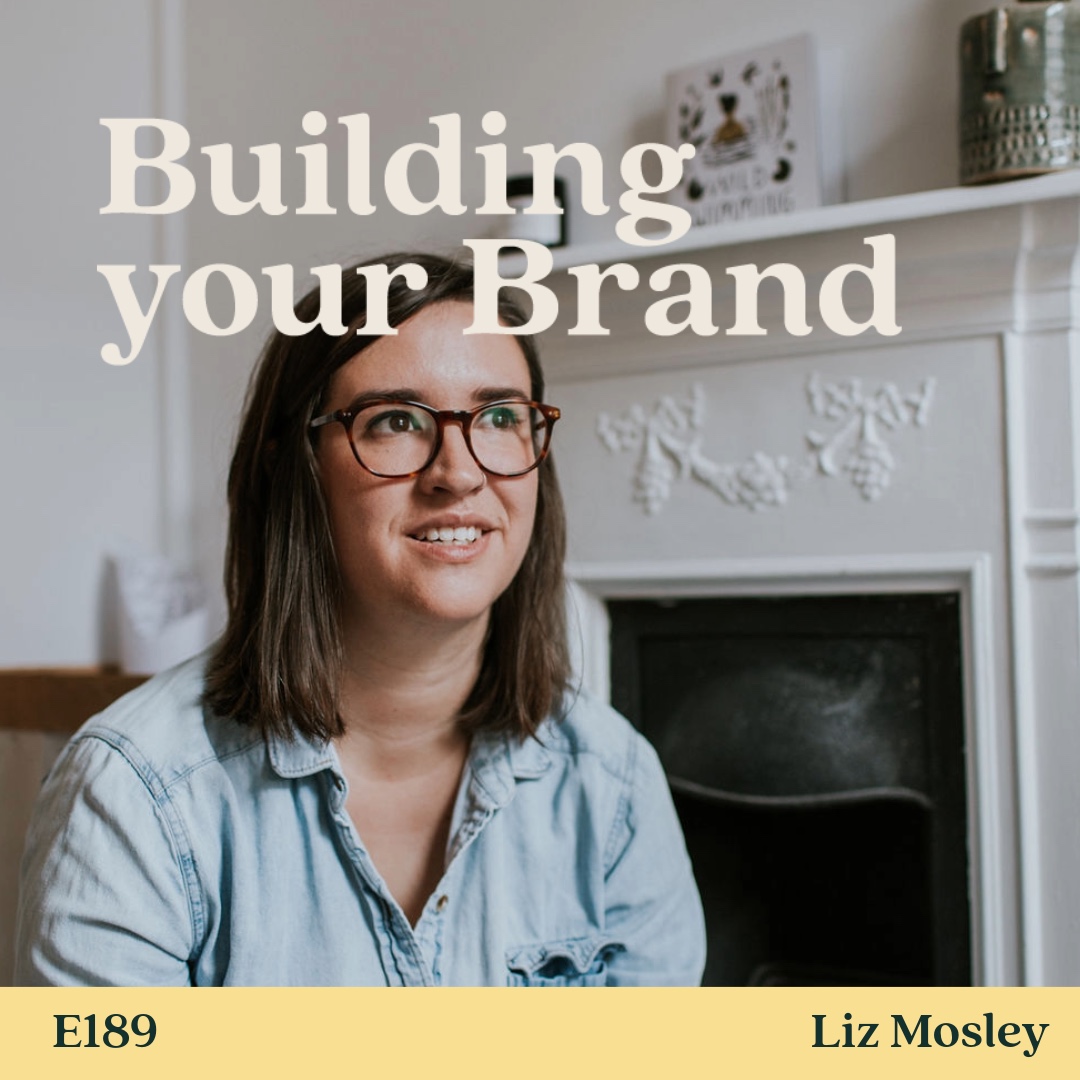
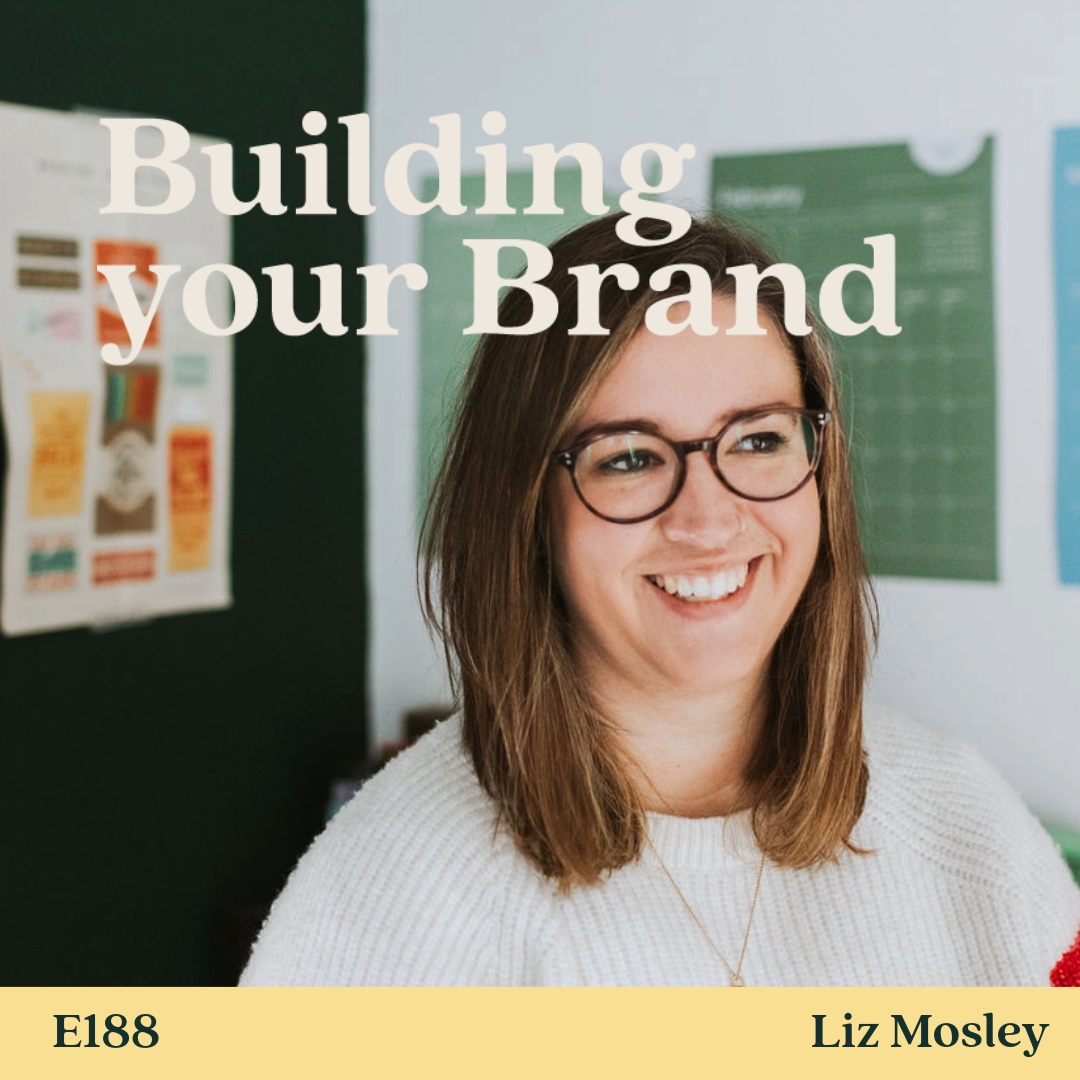
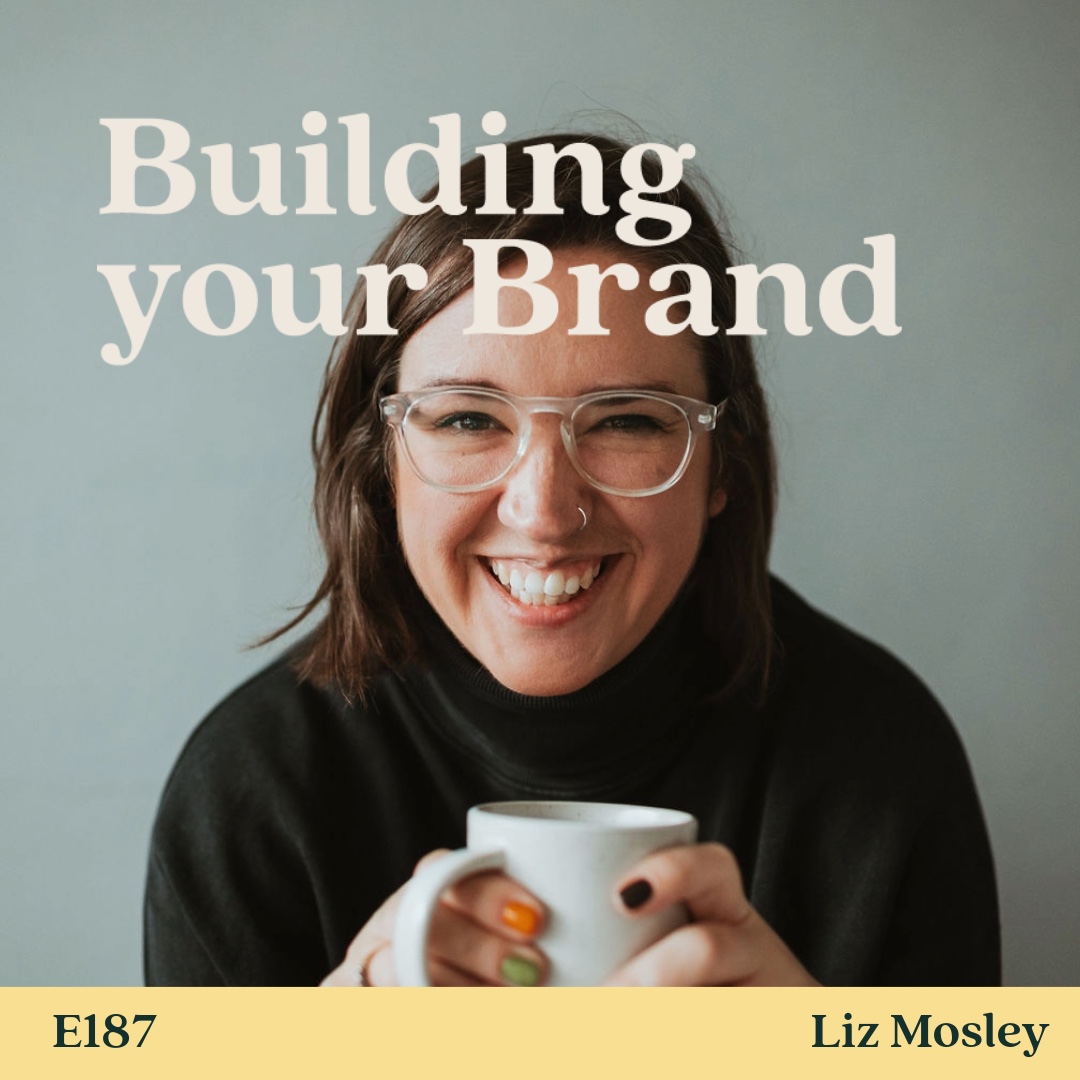
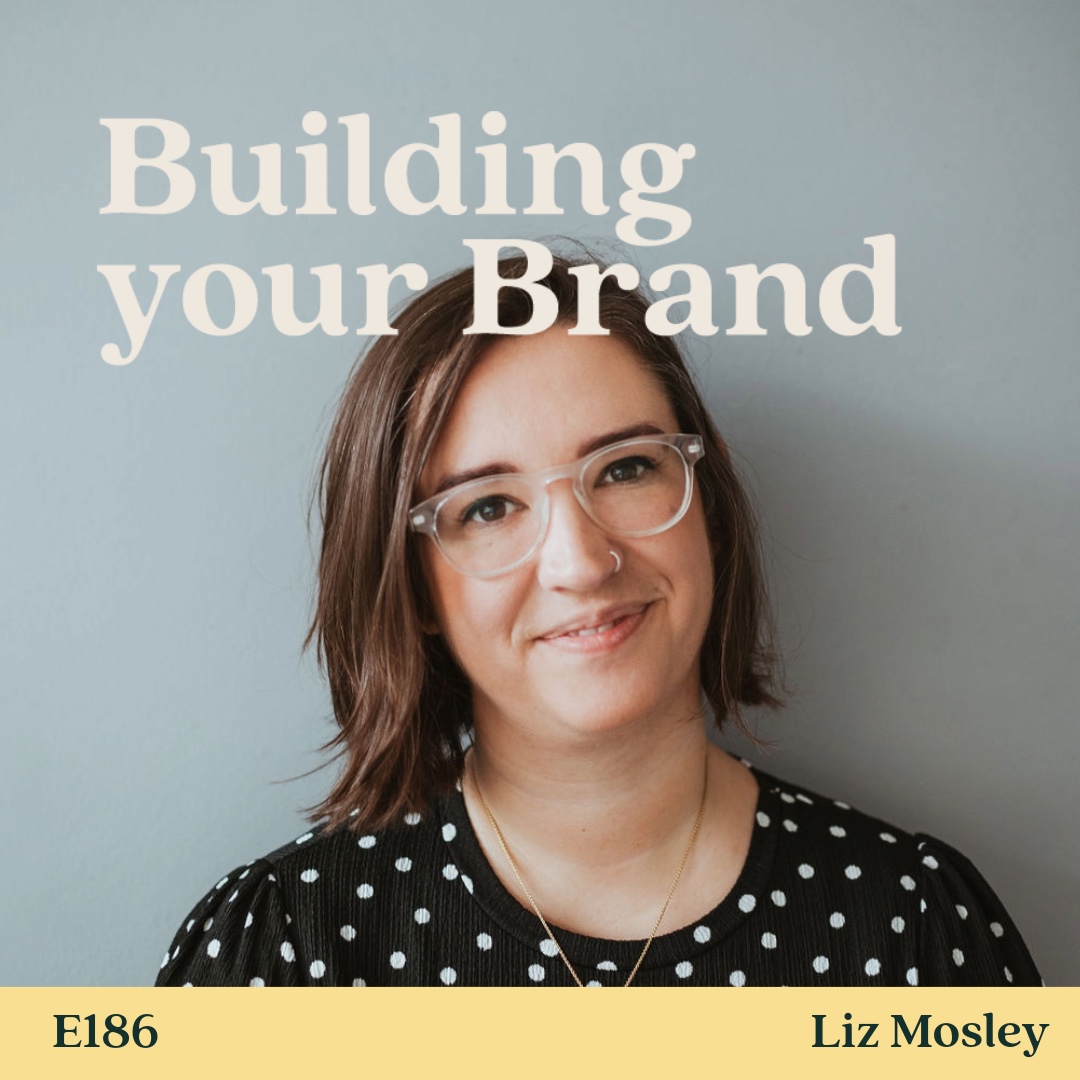
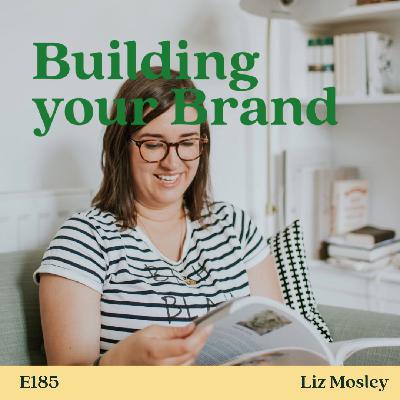



Really grateful to #LizMosley for this interview. It has given me a little spark of hope of a trajectory that could be possible. #ChronicIllness #MEcfs 🙏